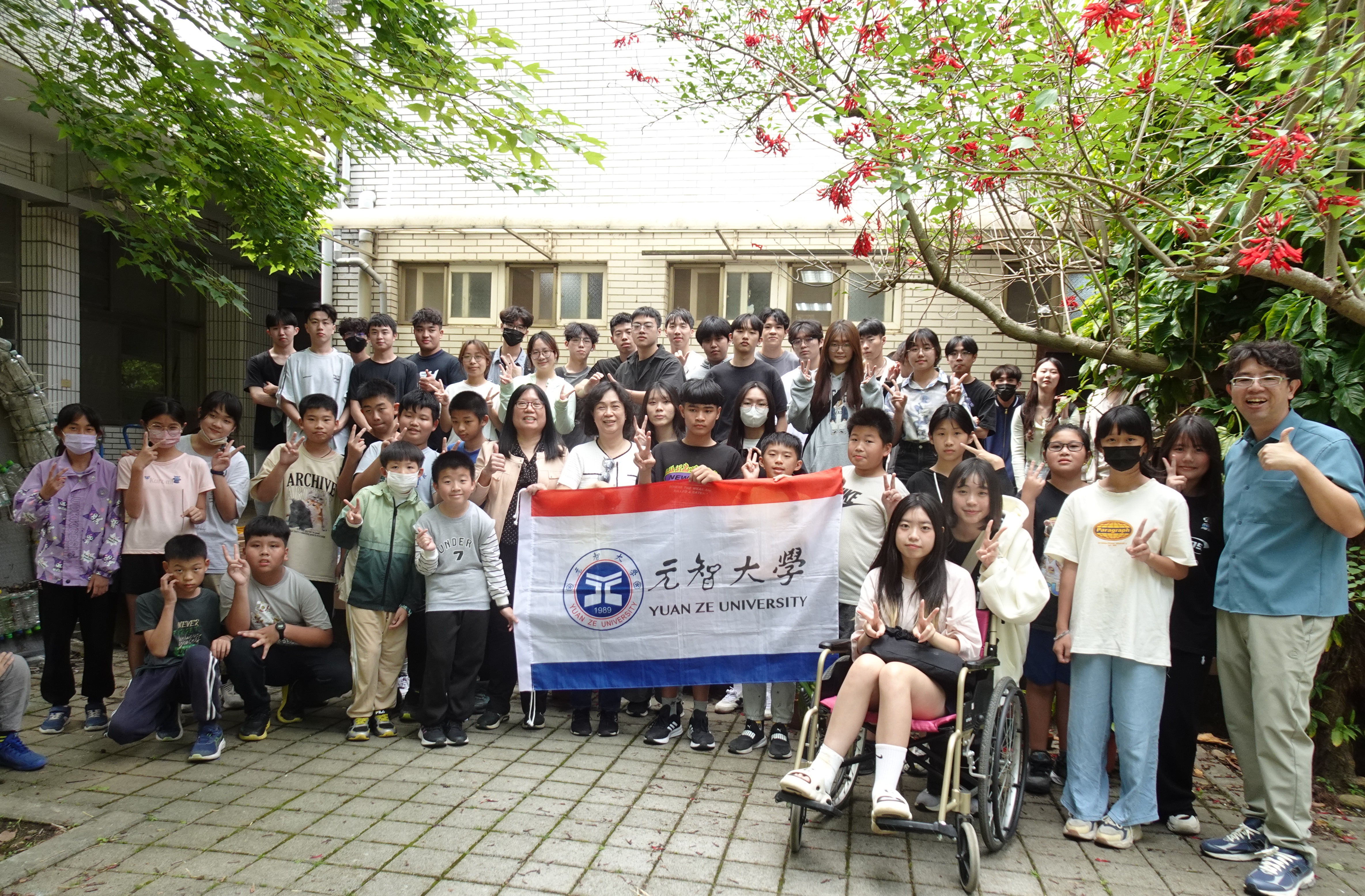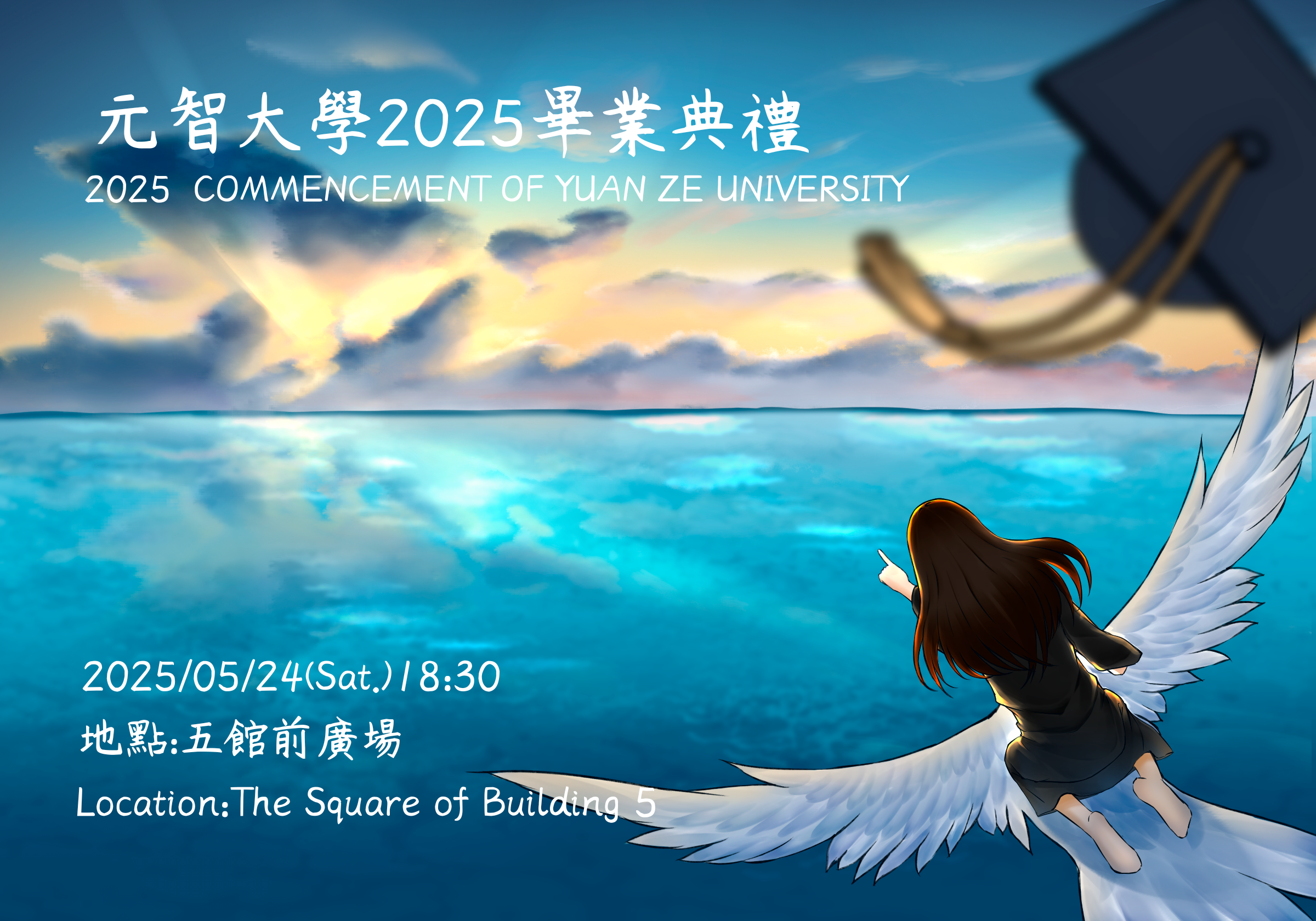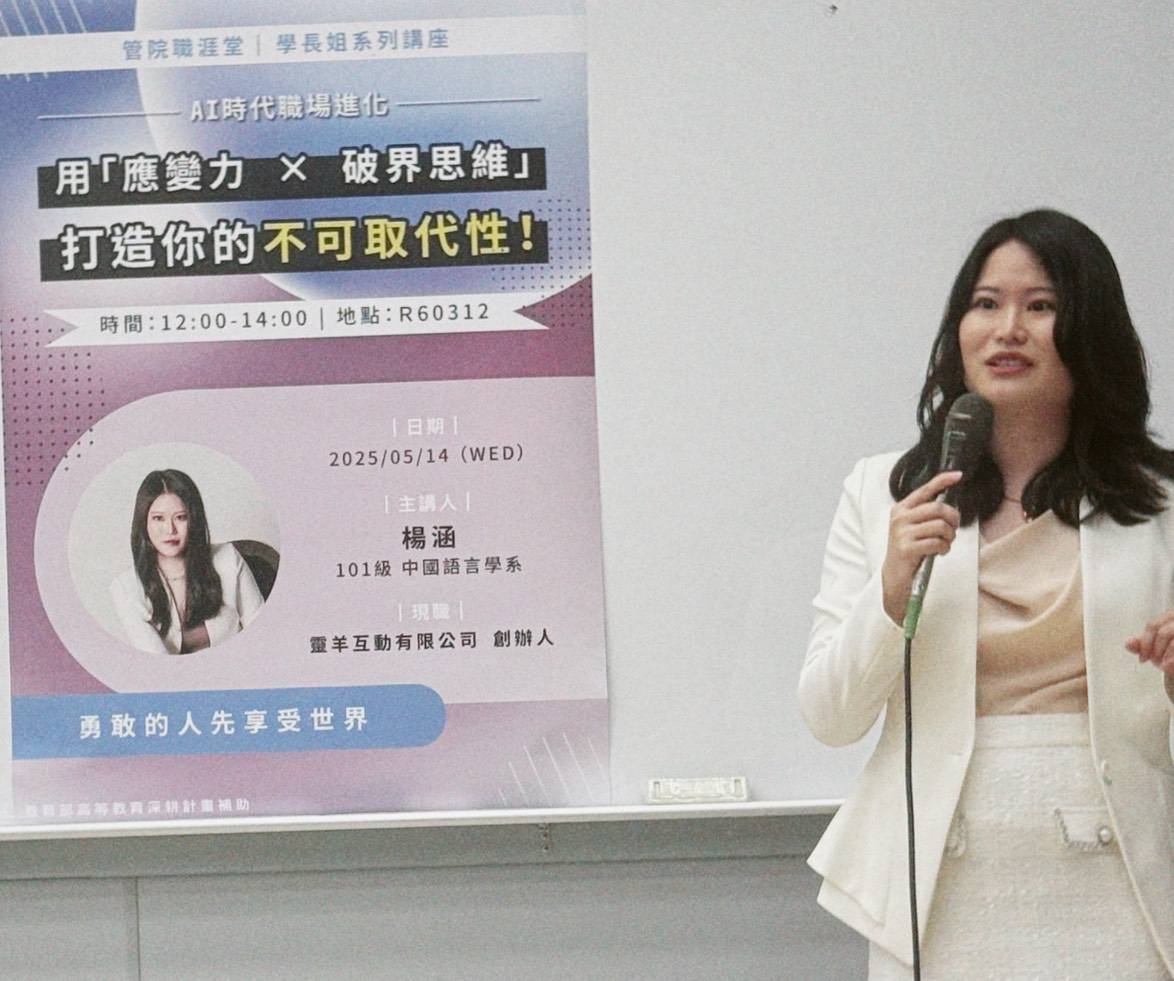Yuan Ze University’s College of General Studies, through its “Childhood Culture” course and social engagement initiative, collaborated with Taoyuan’s Xiaoli Elementary School on a creative ecological education project titled “Improving the Living Environment of Call Ducks.”
The initiative brought together university and elementary school students to co-create a more friendly and nurturing habitat for the school’s call ducks, blending environmental care with imaginative design in a joyful learning experience.
The project was carried out in two phases. The first session took place on April 22, with students from Groups 1 to 5 of the “Childhood Culture” course visiting Xiaoli Elementary School. The second session, held on April 29, was led by Groups 6 to 10. Yuan Ze students carefully designed a variety of engaging and thought-provoking hands-on activities, working alongside young pupils to build a better home for the ducks. Each session was filled with laughter, creativity, and enthusiastic participation from the children.
During the first visit, the university and elementary school students collaborated to build a dedicated water play area for the ducks near the school’s ecological pond. They also designed duck costumes using raincoats and stickers, showcasing a blend of playfulness and creativity. Additionally, they planted organic hydroponic vegetables to serve as a natural food source for the ducks in the future. In the second session, students continued the spirit of ecological construction by repairing the existing duck shelter and using fencing to create a safe running zone. One group co-wrote a “Friendly Call Duck Agreement” on the blackboard with the children to promote animal care awareness. Another group creatively repurposed an unused lawn well into a water play pool, further enriching the ducks’ activity space.
Course instructor Dr. Yi-Yun Wang explained that the course integrated the DFC (Design for Change) approach, guiding students through four key stages: Feel – Imagine – Do – Share. Students were led to identify problems, brainstorm solutions, implement designs, and reflect on their experiences. Throughout the process, they engaged in ideation, discussion, prototyping, and iterative adjustments. The activity fostered students’ abilities to respond to real-world challenges with creativity and problem-solving skills. This cross-generational collaboration not only strengthened emotional connections between university and elementary students but also deepened young adults' hands-on experience in social engagement, grounding education in real-life contexts, and nurturing their sense of social responsibility.
Yuan Ze University noted that this collaboration with Xiaoli Elementary School had become one of the semester’s most meaningful social practice efforts. In addition to the call duck ecological initiative, the university has actively promoted a variety of social engagement programs in recent years. These included digital learning support for rural schools in Taoyuan, digital care services for seniors, and community-building and cultural preservation projects in partnership with local resources. Through these initiatives, students were encouraged to immerse themselves in communities, transforming academic knowledge into practical contributions and embodying the principles of University Social Responsibility (USR). Moving forward, the university aimed to continue deepening its collaborations with schools and local communities to create more meaningful outcomes at the intersection of education and society.
 English
English  正體中文
正體中文 



